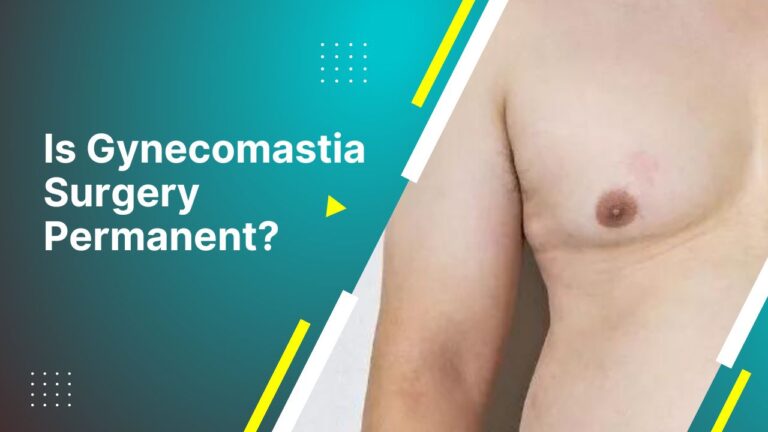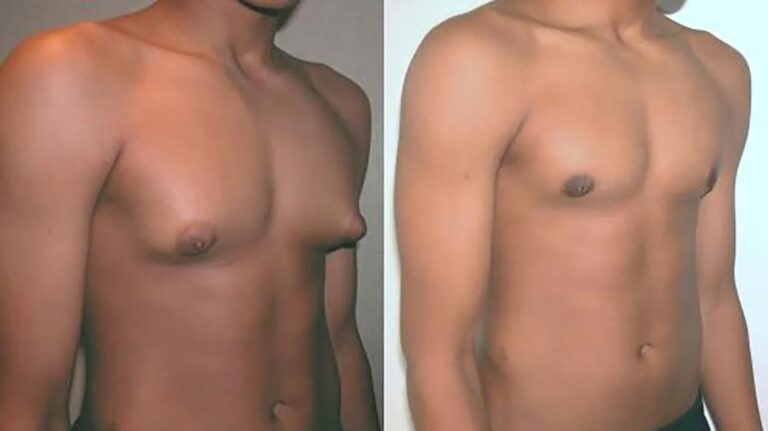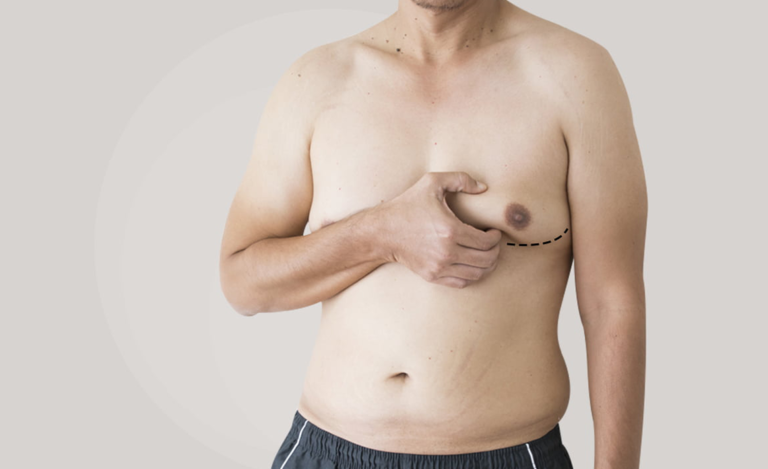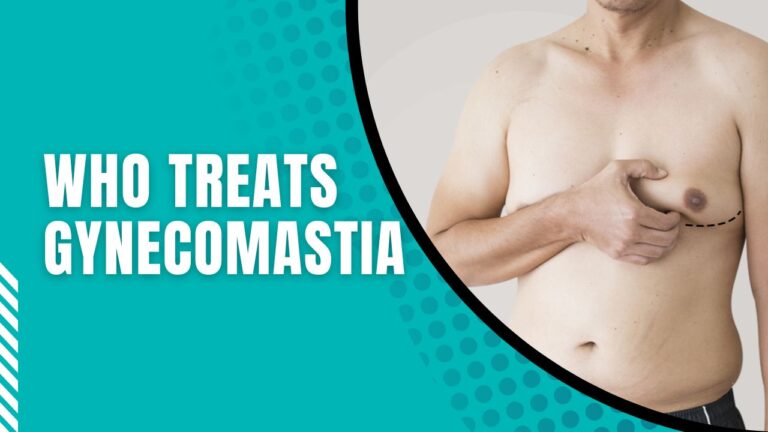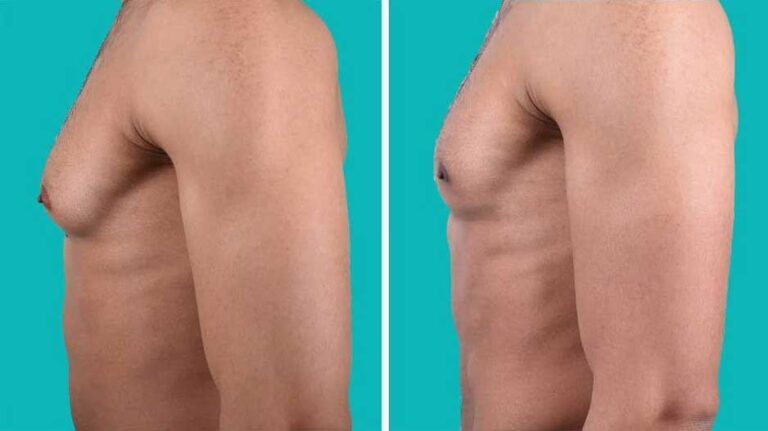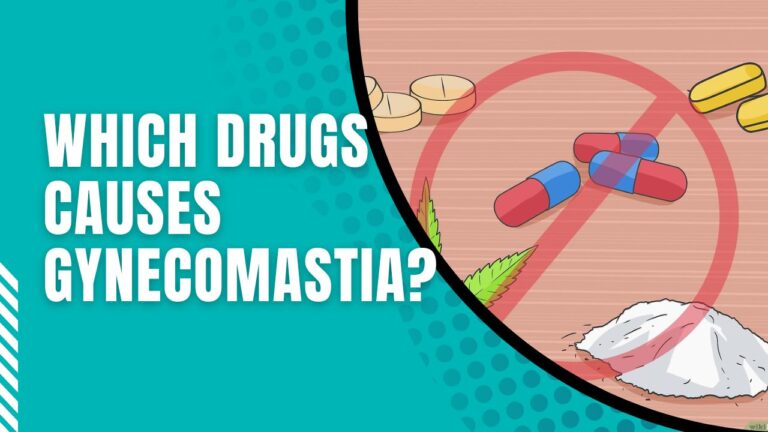Introduction
Understanding the difference between gynecomastia and chest fat is crucial for men who experience chest discomfort or are self-conscious about their appearance. This article will guide you through the key distinctions, helping you identify the condition you might be facing and the appropriate steps to take.
Understanding Chest Discomfort: Gynecomastia vs. Chest Fat
Chest discomfort can arise from various conditions, but when it comes to gynecomastia and chest fat, the causes and treatments differ significantly. Understanding these differences is the first step in seeking the right solution.
The Importance of Differentiating Between Gynecomastia and Chest Fat
Identifying whether you have gynecomastia or chest fat is essential for choosing the correct treatment path. Misdiagnosis can lead to ineffective solutions and prolonged discomfort.
How to Differentiate Gynecomastia and Fat
Defining Gynecomastia: More Than Just Chest Fat
Gynecomastia is a medical condition characterized by the enlargement of breast tissue in men, often due to hormonal imbalances.
Book A Consultation With Dr Tarek Bayazid
Top-rated Plastic Surgeon For Gynecomastia in Dubai
Installment Plan Available
Chest Fat Explained: Is It Simply Excess Weight?
Chest fat, on the other hand, is the accumulation of adipose tissue in the chest area, which is typically a result of overall weight gain.
Characteristics of Gynecomastia vs. Chest Fat
| Characteristic | Gynecomastia | Chest Fat |
| Tissue Type | Glandular Breast Tissue | Adipose Tissue |
| Consistency | Firm | Soft |
| Location | Concentrated around the nipple | Evenly distributed |
| Pain/Tenderness | Often present | Rarely present |
Source: American Society of Plastic Surgeons
Identifying Gynecomastia
Recognizing the Signs of Gynecomastia
- Firm, glandular tissue around the nipples
- Asymmetry between the two breasts
- Sensitivity or tenderness in the chest area
Hormonal Imbalance and Its Role in Gynecomastia Development
Hormonal imbalances, particularly an excess of estrogen or a deficiency in testosterone, can lead to the development of gynecomastia.
The Pinch Test: A Simple Method to Identify Gynecomastia
The pinch test involves feeling for firm, rubbery tissue in the chest, which is indicative of gynecomastia rather than soft, pliable fat.
Understanding Chest Fat
What Causes Chest Fat Accumulation?
- Poor diet
- Lack of exercise
- Genetic predisposition
The Impact of Diet and Exercise on Chest Fat
A balanced diet and regular exercise can significantly reduce the appearance of chest fat over time.
Gynecomastia vs. Chest Fat: Key Differences
How Gynecomastia Differs from Chest Fat Physically
Gynecomastia presents as a more localized enlargement around the nipple, while chest fat tends to be more evenly distributed.
The Role of Nipple Discharge in Diagnosing Gynecomastia
Nipple discharge is not common with chest fat and can be a sign of gynecomastia or other underlying conditions.
Pain and Tenderness: Indicators of Gynecomastia or Chest Fat?
While both conditions can cause discomfort, pain and tenderness are more commonly associated with gynecomastia.
Natural Approaches to Managing Chest Fat
Diet Adjustments to Target Chest Fat
- Increase protein intake
- Reduce processed foods and sugars
- Incorporate healthy fats and complex carbohydrates
Effective Exercise Routines for Reducing Chest Fat
- Push-ups and chest presses
- Cardiovascular activities
- High-intensity interval training (HIIT)
Medical Interventions for Gynecomastia
Treatment Options for Gynecomastia and Chest Fat
| Treatment | Gynecomastia | Chest Fat |
| Surgery | Mastectomy, Liposuction | Liposuction |
| Non-Surgical | Hormonal Therapy | Diet, Exercise |
| Expected Outcome | Removal of glandular tissue | Fat reduction |
Source: ASPS Recommended Insurance Coverage Criteria
When to Consider Gynecomastia Surgery with Dr. Tarek
Surgery should be considered when gynecomastia persists despite lifestyle changes or if it causes significant discomfort or psychological distress.
Liposuction: A Potential Solution for Persistent Chest Fat
Liposuction can be an effective treatment for removing stubborn chest fat that does not respond to diet and exercise.
The Journey to Recovery After Gynecomastia Surgery
Post-surgery recovery involves rest, wearing a compression garment, and following your surgeon’s care instructions for optimal healing. Gynecomastia Duration is how long a person may have enlarged breast tissue, which can vary from a few months to a few years. Female Breast Enlargement is a process where a woman’s breasts are made larger through surgery or other methods. It’s like inflating a balloon to make it bigger.
FAQs: Gynecomastia vs. Chest Fat
Conclusion
Making an informed decision between treatment options for gynecomastia and chest fat is essential. Understanding the differences and seeking professional advice can lead to effective solutions and improved well-being.
Start Your Personalized Treatment Plan with Dr. Tarek
Every individual’s journey is unique, and Dr. Tarek can provide a tailored treatment plan to address your specific needs.



